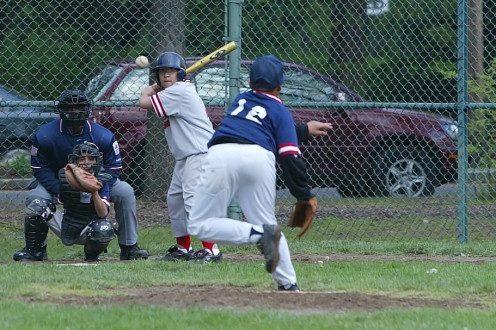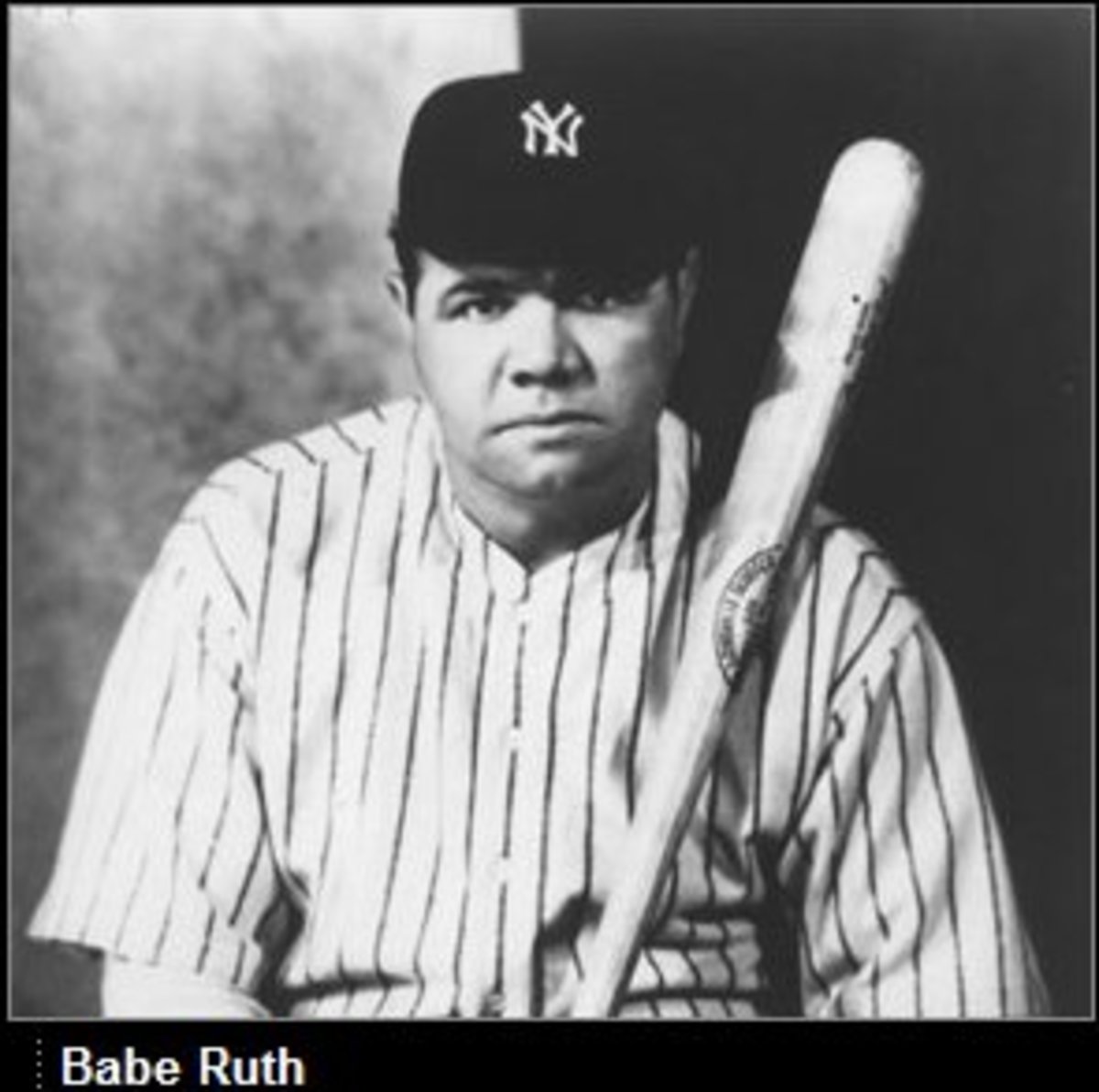Wandering Aimlessly: Just Thinking About My Love for Baseball Along With Millions of Others
Here's Where I Got Hooked

Not Everyone is a Baseball Fan, But Look Deeper
The gravel-covered elementary schoolyard at St. Thomas Acquinas in Toronto was semi-frozen, teeming with children, mostly boys.
The New York Yankees reigned supreme in baseball, the Dodgers still called Brooklyn home, and the Cubs languished near their league's bottom — some constants remain.
At 23, Hank Aaron propelled the Milwaukee Braves to a World Series victory, earning his inaugural League MVP award in the process.
Girls preferred the paved areas near the main building for their recess and lunchtime activities.
Outside school hours, the yard stood empty, a stark contrast to our parks, which boasted ball diamonds, football/soccer fields with goalposts, and playgrounds with swings and slides.
Location was irrelevant; if you wanted to play, you found where the action was, like that gravel schoolyard.
Back then, children simply played outside. We didn't wait to be chauffeured by our parents. Consequently, I joined other children who were eager to play ball, and we all evolved into ballplayers rather than merely children playing a game.
I was seven when I observed a group of about a dozen boys, gloves in hand, clustered fifty yards from a ten-year-old wielding a bat and ball, engaged in a game known as '500.'
Points were awarded for successful catches and deducted for missed attempts (errors). Catching a fly ball (one that never touched the ground) earned 100 points, while catching a grounder (one that bounced first) earned 25 points. If you missed a catch and the ball touched your glove, you lost the points you would have gained for catching it (reward and punishment system).
The batter had the freedom to hit the ball with as much force as desired, to any player, and in any direction, provided it was aimed towards at least one player in the field (batters had flexibility and could influence the game's outcome).
I don't recall playing ball with females until mixed ball in my early thirties; not many girls played ball in my area during my youth.
Eventually, I approached a boy on the field to ask if I could join. I was eager to bat, which seemed like an exciting role, and something I had never experienced before.
Another boy glanced at me, noted my smaller size and younger age compared to the rest, and remarked, "You don't have a glove."
After a brief pause, I inquired if I could still play without a glove. He nonchalantly agreed and rejoined the others. As he walked away, I suspected he doubted my chances of batting without a glove or knowledge of the game.
As he wandered off, I removed my little jacket, unfolded it in front of me with arms outstretched, and pursued every ground ball I could, using my jacket as a makeshift glove. I managed this by staying ahead of the other boys, darting around like a frenzied rabbit. I even snagged a fly ball, which was only because the other boys were curious to see if I could do it; they had never seen anyone use a jacket as a baseball glove before.
Eventually, just before the school bell summoned us back to class, I had scored enough points to take a turn at bat. Unsure how to pitch to myself, another player pitched for me. I connected with only about two out of the ten pitches, but I was captivated. Forever.
I learned all the fundamental aspects of baseball on that brisk, sunny day in March of 1957.
My ball-playing days ended abruptly in early May 2005 when an assailant's steel-toed boot shattered my jaw, cutting that season short. (I later took up golf to fill the void, developing a new passion and eventually finding comfort in the idea that some events happen for a reason, even if it's not immediately apparent.)
For nearly fifty years, I was a ballplayer. I might not have been one in 1957, but the other boys saw my sincere wish to be part of the game. They included me then and in subsequent years, with different kids over time. True ball teams always look for true ballplayers who know instinctively what to do in critical moments.
I can visit any field where the game is played and distinguish the real ballplayers from those just playing the game, even if they're excellent athletes in other sports. It's in the way they handle a ball, glove, or bat. And in their movements.
Baseball's uniqueness among team sports lies in how it places each player in a position to individually impact the game's outcome multiple times. Each player has their moment to shine or falter, or to be the last hope in a game that hinges on someone making a hit or getting on base to give another the chance to be the hero.
Often, it's creativity and intelligence, not just raw strength or stamina, that shifts the balance.
Ultimately, it all boils down to execution.
In baseball, nothing positive unfolds unless you do what's necessary, no matter how trivial it may seem. Like executing a timely bunt, or delivering a perfect strike-three pitch when a strikeout is the key to winning a game or a championship.
Since that day in 1957 and thereafter, here's what I've learned that can enhance your enjoyment of a ball game:
The score isn't everything. As a player, I can say winning is more enjoyable than losing, mainly because it's easier to laugh off one's errors. Therefore, every ballplayer competes to win, striving to do their best, and shrugs off losses. It is near impossible to be perfect and it still is just a game. There will be another.
Competitors in any sport see themselves as modern-day gladiators. They seek your approval as spectators, engaging in what is essentially live drama. Players, regardless of age, are deeply emotionally invested. Look for emotionally invested ballplayers.
Picking a side is crucial. Baseball games don't end in ties; there's always a winner. Whether it's little league or the majors, choosing a side will engage you emotionally. Without a side, the game becomes a tedious, single-act play. (Focusing solely on your child's performance will cause you to miss the game's entirety. They're part of a team, and you'll miss out on shared team experiences if you overlook their teammates' actions. But don't forget your child is out there playing for you as well.)
Remember, sports viewing is meant for entertainment. Professional sports are tailored entertainment, much like movies and TV shows, targeting a specific audience. Many attend amateur sports events to support someone they know, and emotions often run high. However, the fate of humanity doesn't rest on the outcome. It's just a game.
If someone invites you to a baseball game, they're likely a fan wanting to share their passion with you. (For instance, I proposed to my wife during the 1979 World Series because she enjoyed watching baseball on TV. That wasn't the sole reason, but it mattered to me. We're still happily married, with two children and a grandchild. She rooted for the Pittsburgh Pirates, charmed by Willie Stargell and Kent Tekulve's performances.)
Ahhhhhhhhhhhhhh!

This content reflects the personal opinions of the author. It is accurate and true to the best of the author’s knowledge and should not be substituted for impartial fact or advice in legal, political, or personal matters.
© 2014 Talore Hillton








